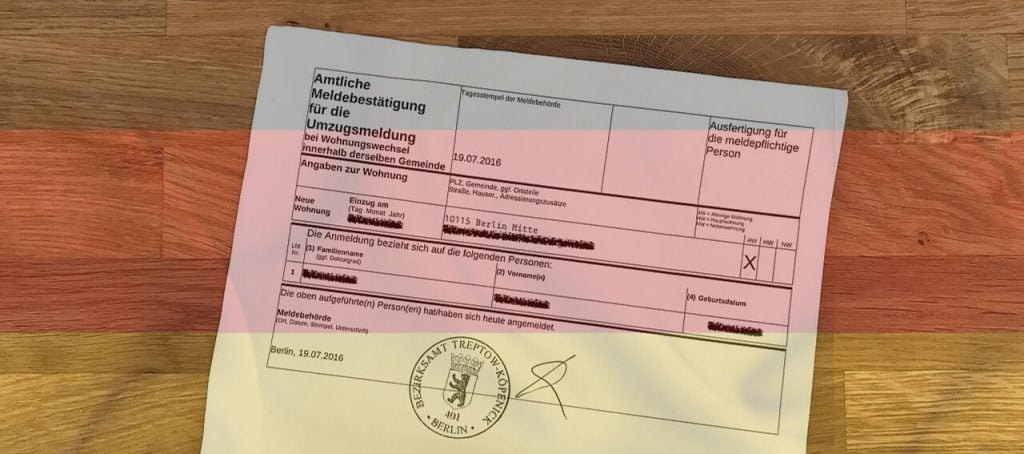September 5, 2023
7 Immediate Things To Do After Arriving In Germany
By Deepthi Kurian
Are you planning to embark on your journey as an international student in Germany? If so, you're in for an exciting adventure! In this blog post, we'll be delving into the seven essential things to do immediately upon your arrival in Germany. Whether you're already accepted into a German university or still in the decision-making phase, these insights will prove invaluable in helping you navigate the initial stages of studying abroad. Keep in mind that while some specifics may vary based on your chosen state and university, these fundamental guidelines are universally applicable to all students arriving in Germany.
Watch our video on the 7 important things to do after arriving in Germany.
These formalities must be completed immediately for you to get settled in Germany. Initially, you'll enter Germany on a temporary entry visa, which typically remains valid for 3 to 6 months. However, if you plan to stay in Germany for the long term, you'll need to secure a temporary residence permit. The catch is that you can only apply for this permit after your arrival in Germany, but be prepared with the necessary documents. Once you've obtained your residence permit, you can then proceed to address the initial formalities. Transitioning to a new country like Germany can be a challenge as you adapt to the climate, educational system, and language. It's easy to overlook these essential tasks amid the adjustments, especially if you lack proper guidance or face language barriers. Luckily for you, after reading this article, you'll have a clear roadmap to ensure that you don't miss any crucial steps in this process.
Find Accommodation

Finding a permanent accommodation should be your immediate concern after arriving in Germany.
Some of you may have already made arrangements for housing at the college or in the Studierendenwerk dorms. If the accommodation you arranged before arriving in Germany is permanent, you will have nothing to worry about. If you only reserved a hotel room or temporary housing at a friend's house, you will still need to find housing. University housing and accommodation search websites like WG-Gesucht & ImmoScout24 are the best options for international students looking for housing. Finding a permanent accommodation should be your immediate concern after arriving in Germany.
Anmeldung (City Registration)

Every foreign student arriving in Germany are required to register their address at the Bürgerbüro.
After you have finalized your accommodation, it is mandatory to register your address at the resident's registration office (known as Bürgerbüro) in your city. This is a vital process and should be completed within the first two weeks of your arrival. To register your address, you will need to provide your rent agreement or a declaration from your landlord confirming your residence.
Enroll at the University

Once you arrive in Germany, you have to enroll at the university in person.
After arriving in Germany, it is important to complete the enrollment process at the international students' office of your university. The staff members at the office will guide you through the entire process and assist you in registering for your courses and paying the semester fee. Once you have completed these steps, you will receive your university card and semester ticket. The semester ticket will enable you to travel on public transport free of charge within your region. On the other hand, the university card will grant you access to various university facilities including the library and cafeteria. If you are still in the planning phase, check out this article on everything you need to know regarding higher education in Germany.
Want to study in Germany for zero tuition fees? Public universities in Germany are welcoming students from all over the world. Find out how to get admission to a public university in Germany.
Open a Bank Account
When it comes to studying in Germany, one of the first steps you'll need to take as an international student is opening a bank account. Why is this so important, you ask? Well, most students are required to open what's known as a blocked account, which serves as proof of their financial means to cover living expenses during their stay. If you're new to the German banking scene, fear not – it's a straightforward process. If you would like, you can read about opening a blocked account in Germany. However, in this article, we will be discussing opening a normal, savings account after you arrive in Germany.

Opening a bank account is important for any foreign student in Germany
Once you've made the decision to study in Germany, opening a bank account should be a top priority. When you do, you'll receive an EC card or a debit card, making financial transactions a breeze. Plus, in the age of digital convenience, you'll find that most of your banking needs can be met through user-friendly banking apps.
The good news for students is that many banks offer free accounts, especially if you fall into the young student category. You have options when it comes to where you open your account. You can opt for a private commercial bank like Commerzbank or Deutsche Bank, or you can go for a public savings bank such as Sparkasse or Volksbank. Keep in mind that public banks are more localized, with branches in smaller towns, while private banks operate throughout the country and, in some cases, globally.
Now, here's a modern twist: Germany also boasts free online banks, also known as direct banks, which primarily operate in the digital realm, without physical branches. These can be a convenient choice if you prefer managing your finances from the comfort of your computer or smartphone.
Regardless of which bank you choose, you'll need to gather some essential documents to open your account. These typically include your passport, a copy of your visa or residence permit, a Meldebescheinigung (a registration certificate), and sometimes, your university enrollment certificate. By having these documents in hand, you'll be well-prepared to navigate the process and start managing your finances smoothly in Germany.
Get a Sim Card
In addition to setting up your bank account, another task you can tackle right away upon your arrival in Germany is getting a new SIM card for your mobile phone. Ensuring you have a local SIM card is essential for staying connected and making your life in Germany more convenient.
You'll find various options for obtaining a SIM card, with telecom giants like Vodafone offering their services at dedicated stores. However, the convenience doesn't stop there. Some supermarkets, such as Lidl and Aldi, also offer their own SIM cards, making it even easier to get connected.
When you decide to purchase a SIM card, make sure to have the following documents handy: your passport for identity verification, proof of address (in the form of a Meldebescheinigung), and your bank account details for payment purposes. Having these documents readily available will streamline the process and get you on the path to seamless communication during your time in Germany.
Activate your health insurance
Upon your arrival in Germany, one of the crucial tasks you should immediately address is activating your health insurance. While you may have secured health insurance as part of your visa application process, it's imperative to note that this coverage must be activated once you've arrived in Germany. Health insurance isn't just a suggestion; it's a mandatory requirement in Germany and serves as a prerequisite for applying for a residence permit. Ensuring that your health insurance is active is not only a legal obligation but also a fundamental step in safeguarding your well-being during your stay in Germany. So, don't delay – make sure to activate your health insurance promptly after your arrival.

In the event of an illness or accident, you will not have to pay for hospital bills and medication out of your own pockets.
You can check out our article on the best public health insurance options available for foreign students in Germany.
Apply for a Residence Permit
If you're planning to study in Germany, obtaining a Student Schengen Visa is a mandatory requirement. This visa is your ticket to embark on your educational journey in Germany, and it's initially granted for a duration of 3 months. It's crucial to note that you cannot stay beyond this 3-month period without obtaining either a visa extension or a residence permit.
Once you've completed essential tasks like address registration, university enrollment, and securing health insurance, you're eligible to apply for a residence permit at the Foreigners' office in your city. It's essential to be aware that there might be a waiting period of a few weeks before you can secure an appointment, so it's advisable to initiate this process as soon as possible after gathering the necessary documents.
To apply for a residence permit, ensure you have the following documents ready:
- Residence permit application form
- Passport
- University enrollment certificate
- Passport-size photos
- Proof of health insurance
- Rental contract (if applicable)
- City registration certificate
- Proof of financial means
- Residence permit fee (for the first-time application, it typically amounts to 100 euros)
Having these documents prepared and ready for submission will streamline your residence permit application process, allowing you to focus on your studies and life in Germany with peace of mind.
Summing It All Up
Embarking on your journey as an international student in Germany is an exciting and transformative experience. The initial stages of settling into your new life can be a bit overwhelming, but with the seven essential tasks outlined in this guide, you'll be well-prepared to navigate the challenges and seize the opportunities that await you. From securing your residence permit to ensuring you have a local SIM card and activating your health insurance, each step is a crucial building block for a successful academic adventure in Germany.
Remember, while the specifics may vary based on your chosen state and university, the fundamental guidelines provided here are universally applicable to all students arriving in Germany. With the right information and a proactive approach, you can make the most of your time as an international student and enjoy a fulfilling experience in this vibrant and welcoming country. So, go ahead, tackle these tasks, and embark on your educational journey with confidence and enthusiasm!
Other Blogs
3
Feb

How to Qualify for Germany’s Opportunity Card: Eligibility Criteria Explained
Germany’s Opportunity Card offers skilled professionals an easier way to live & work in Germany. Learn about the eligibility criteria, points system, and more.
28
Jan

Why Choose German Public Universities for Your Master’s Program?
Discover why German public universities are ideal for a Master's: world-class education, tuition-free programs, vibrant culture, and excellent career prospects!
2
Jan

Germany’s Opportunity Card: A Game Changer for Skilled Professionals
Germany's Opportunity Card offers skilled professionals a simplified path to live and work in Europe's strongest economy, no job offer needed.


